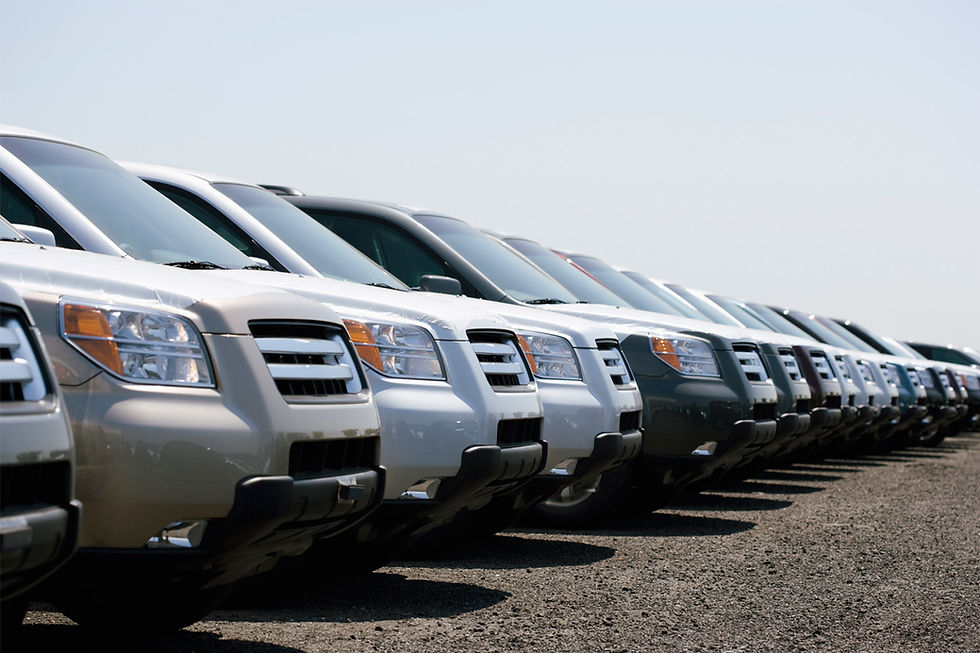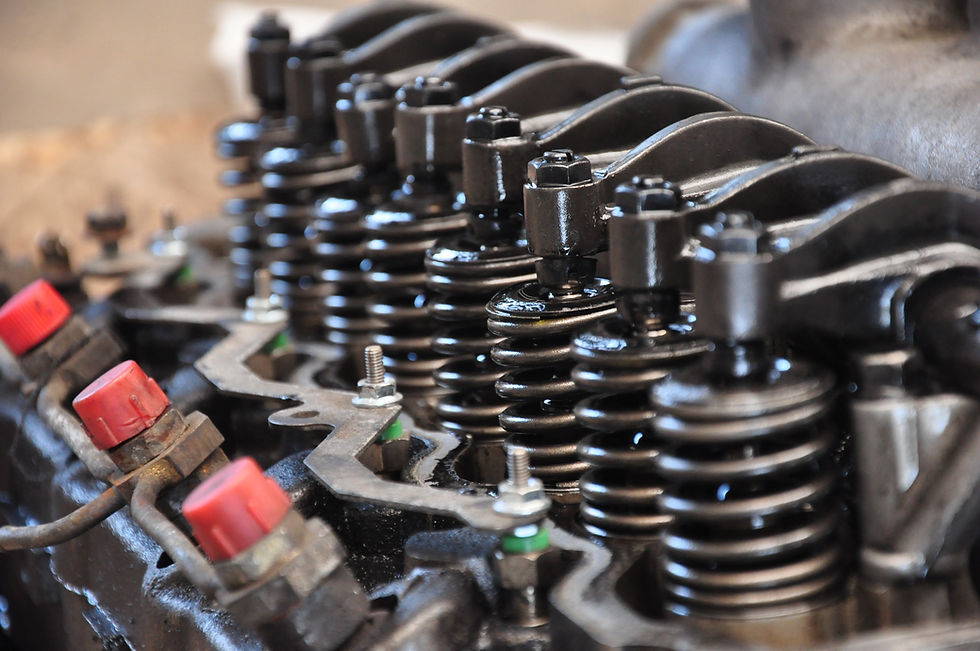Understanding Salvage Vehicles: A Beginner's Guide
- David Briscoe

- May 21, 2024
- 4 min read

Are you considering purchasing a salvage vehicle? Or perhaps you're simply curious about what these vehicles entail. In either case, you're in the right place! This guide will take you through the essentials of salvage vehicles, explaining what they are, why they might be a great deal, and what you need to look out for. So, let's dive in!
What Are Salvage Vehicles?
Definition and Basics
Salvage vehicles are cars, trucks, or other vehicles that have been deemed a total loss by an insurance company. This means the cost to repair the vehicle is higher than its actual market value. Once declared a total loss, the vehicle receives a salvage title.
Why Are Vehicles Salvaged?
Vehicles can be salvaged for a variety of reasons, including:
Accidents: Significant collisions causing extensive damage.
Natural Disasters: Floods, hurricanes, or other catastrophic events.
Theft Recovery: Vehicles that were stolen and then recovered, often with missing parts.
Vandalism: Severe damage caused by vandalism.
These reasons highlight the diverse circumstances under which a vehicle might be labeled as salvage. Understanding this helps in assessing whether a salvage vehicle is a good option for you.
The Pros of Buying Salvage Vehicles
Affordability
One of the biggest advantages of purchasing a salvage vehicle is the cost. Salvage vehicles are often sold at a fraction of the price of a similar, non-salvaged vehicle. This affordability can make higher-end models or luxury cars more accessible.
Potential for Restoration
For those who enjoy working on cars or are in the automotive repair business, salvage vehicles offer an excellent opportunity. With the right skills, you can restore these vehicles to a roadworthy condition, sometimes even to their former glory.

Parts and Customization
Salvage vehicles can also be a treasure trove of parts. If you own a similar make or model, buying a salvage vehicle can provide you with a cheap source of spare parts. Additionally, these vehicles can be used for custom projects, offering a unique base for automotive enthusiasts.
The Cons of Buying Salvage Vehicles
Hidden Damage
While the price might be tempting, salvage vehicles come with their share of risks. Hidden damage is a common issue. What looks like a minor repair on the surface might hide significant problems underneath. Always ensure a thorough inspection by a professional mechanic before making a purchase.
Insurance Challenges
Insuring a salvage vehicle can be tricky. Many insurance companies are hesitant to offer full coverage on salvage titles due to the higher risk and difficulty in assessing the vehicle's true value. You might only be able to get liability coverage, or the premiums might be higher.
Resale Value
The resale value of salvage vehicles is generally much lower than their clean-titled counterparts. Even after repairs, the salvage title stays with the vehicle, often deterring potential buyers. This can make it challenging to recoup your investment if you decide to sell the vehicle later on.
What to Look For When Buying a Salvage Vehicle
Thorough Inspection
The first step in considering a salvage vehicle is a comprehensive inspection. Engage a trusted mechanic who can look for structural damage, electrical issues, and potential safety concerns. They should also check for frame alignment, rust, and any signs of poor repair work.

History Report
A vehicle history report can provide valuable insights into why the vehicle was salvaged and its repair history. Websites like Carfax or AutoCheck can be used to get detailed information about past accidents, title changes, and more.
Documentation and Title
Ensure that the salvage title is clear and that all the necessary documentation is in order. Each state has different regulations regarding salvage vehicles, so familiarize yourself with local laws and requirements. Proper documentation is crucial for future registration and resale.
Tips for Buying Salvage Vehicles
Know Your Limits
Understand your mechanical skills and know when to seek professional help. While some repairs might be within your capability, others might require specialized tools and knowledge. Don't bite off more than you can chew.
Set a Budget
Determine how much you're willing to spend not only on the purchase but also on repairs. Include potential hidden costs, such as unexpected repairs or higher insurance premiums. Setting a budget helps prevent overspending and ensures you get a good deal.
Be Patient
Finding the right salvage vehicle takes time. Be prepared to walk away from deals that don't meet your criteria. Patience is key to finding a vehicle that offers the best balance of cost, condition, and potential for repair.
Conclusion: Is a Salvage Vehicle Right for You?
Salvage vehicles can be a great deal for the right buyer. They offer affordability, the potential for restoration, and a source of parts. However, they also come with risks, such as hidden damage and insurance challenges. By conducting thorough inspections, understanding the vehicle's history, and setting a clear budget, you can navigate the salvage vehicle market more confidently.
Ultimately, whether a salvage vehicle is a good investment depends on your individual needs, skills, and willingness to take on potential challenges. If you're up for the task, you might just find a diamond in the rough.




Comments